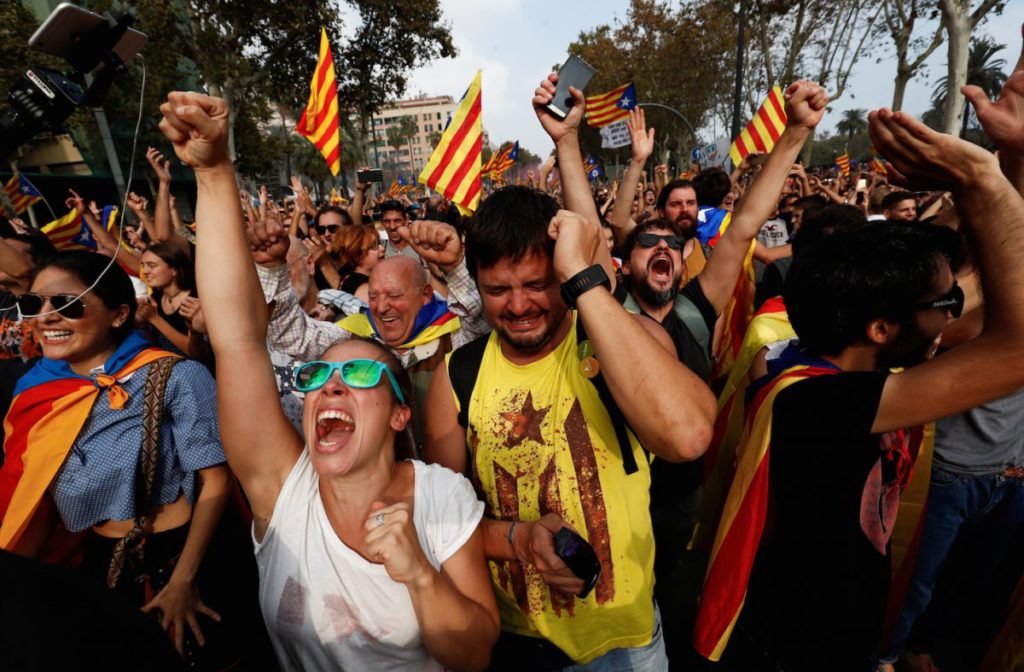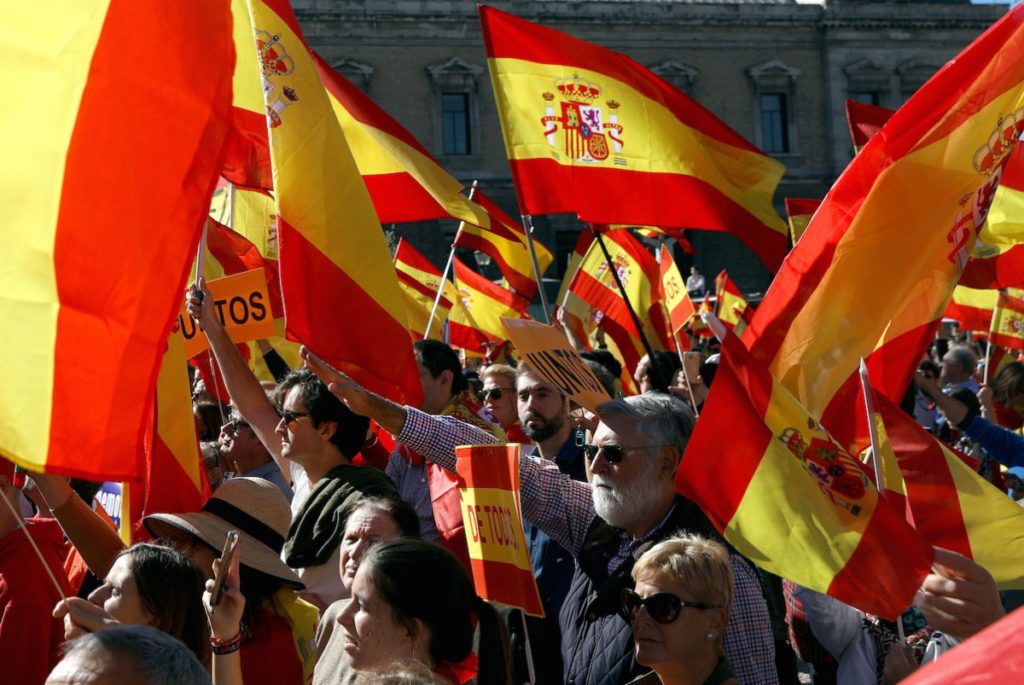‘Look at the chaos of European history. Europeans cannot believe in certainty.’ – Carl Andre
Last Friday, the Catalan regional parliament, a legislature with 135 seats, voted 70-10 in favour of proclaiming independence from Spain but with 53 opposition representatives boycotting which made the vote illegal under Spanish law. Just a few moments after, the Senate of Spain approved the invocation of Article 155, imposing direct control over Catalonia. Since the outburst of the whole Catalan crisis on 1 October, many questions have been raised as to why the European Union has largely not imposed its standpoint on the whole affair. From the Independent and the Guardian to Vladimir Putin, many blame the EU for turning a blind eye, applying double standards and for hiding behind legalities, claiming that the problem of Catalonia is a domestic affair of Spain.
EU critics claim that had it not been Catalonia but – let us say – the Crimea, Angela Merkel would have already been ‘in full mediation mode’ by 3 October and the always loose-tongued Jean Claude Juncker would have already slapped Mariano Rajoy the Prime Minister of Spain with the label of dictator for using police force to prevent the Catalonian independence referendum, declared unconstitutional by the Constitutional Court of Spain. Moreover, President Putin has accused the EU of having double standards for considering the people of Kosovo to be “true freedom fighters” but not the Catalans. They clearly have some point, with the exception of Mr Putin who disregards the meaningful differences between the cases of Kosovo and Catalonia (see boxed section), though their analogy somewhat oversimplifies the situation, for solutions to such political deadlocks are typically as clear as mud, and it also ignores the EUs core legal structure by demanding that it should somehow intervene in the domestic affairs of a sovereign member state without them asking for it.
Such theory, that the EU should stand up as a mediatory force between the two parties and actively foster a resolution to the conflict as it did during the Ukrainian and Syrian civil wars, sounds like something that the EU would do in most cases where both parties are intractably sticking to their guns, the only institution capable of getting them to the negotiation table being the EU. However, since Catalonia enjoys extensive autonomy already, despite lacking their own foreign affairs, armed forces and a completely separated budget, there is nothing else they can demand other than these three things. On the other hand, securing these institutions would mean complete independence. There is little chance to settle the matter this way.

Those against secession, including the Spanish government and a proportion of Catalan society largely equaling those who support independence, are not willing to and, in the case of the government, are not even able to accept such demands because of constitutional constraints. Furthermore, to grant independence to Catalonia would mean that Spain loses one of the biggest parts of her economy and most probably enhance pro-independence voices in Basque Country, another major economic centre, mainly populated by the Basque people. As one of the government spokespersons said, “We’re not prepared to discuss the dismemberment of Spain and they don’t want to talk about anything else.” Seemingly neither do the other EU Member States consider it to be in their interest to resolve the situation in such a manner, afraid of the upheaval of separatist movements across Europe which could bring chaos and disintegration instead of progressing on the road towards greater integration as set out in the foundation treaties of the Union.
However, since the Catalan Parliament pushed forward with the proclamation of independence, despite the population being largely divided on the matter (most polls show that roughly equal numbers of Catalans inhabit the two opposing sides on the independence question, though some polls even suggest that the anti-independence crowd outnumber their counterpart); since the Spanish Senate just minutes later authorized the sacking of the Catalonian regional government, events can quickly escalate. It has been reported that Madrid had been ready to mobilize special police forces to arrest the Catalan leadership in case of their declaration of independence since, according to the Spanish Attorney General, they will have committed ‘rebellion’. On the other hand it is not clear how such a scenario could be managed without using unnecessary amounts of violence.

The overall picture is overshadowed by Catalonia’s 17,000 strong regional police force, the Mossos d’Esquadra, whose command in theory passes to Madrid in accordance with Article 155 but will most probably remain loyal to the regional government as it had also been loyal during the referendum, defying direct court orders to close polling stations. One senior politician of the ruling Popular party said, “The big fear is that we will use Article 155 to take control of the Mossos and oust the government, but they will simply refuse to obey us”. What is more, Citi analysts earlier this month claimed that the Spanish government imposing direct control over Catalonia can trigger “civil rebellion, with possible wide disruptions and violent confrontations… A move by the regional police force to ally with the pro-independence parties could significantly escalate the situation.”
We can clearly see that the situation in the region is tense and that there are seemingly no good solutions as the bare minimum that the secessionists demand is more than the maximum the pro-unity side can give. Hopefully the conflict will not escalate and, even if at the upcoming elections the problem will not be solved completely, it will eventually return into being a conflict within legal boundaries. Should the future prove wrong those who have been optimistic regarding the matter, with no other major party more interested in the stability of Spain than the EU, Brussels must come to the aid of peace and stability by mediating between the opposing sides. If she fails to do so, it might easily happen that the Union will stand by as one of her Member States plunges into civil war. However, until that extreme point, as there are no legal or political grounds for such intervention, the European Union should instead focus her efforts elsewhere, at least for the time being.


